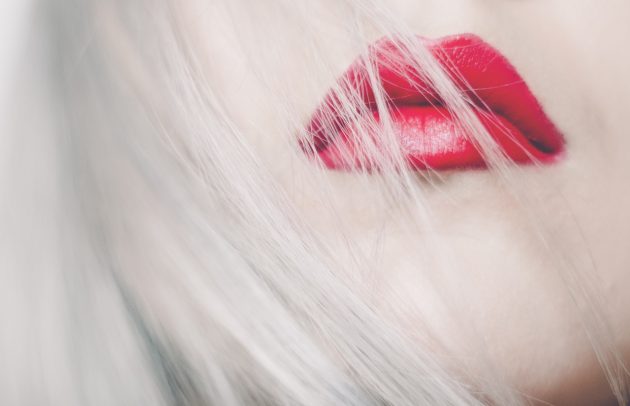Acne and makeup can often feel like a chicken and the egg scenario. You want to wear makeup to cover up the acne. Yet the makeup may be making the acne worse. Fortunately, this does not have to be the case. You don’t have to choose between hiding the acne and treating it. There are many ways that you can prevent breakouts from happening and mistakes that you can avoid if you don’t want to experience them. Here are a few tips on how to prevent acne breakouts when wearing makeup.
Clean Your Skin First
You can minimize the odds of makeup triggering acne by cleaning your skin before applying the makeup. This includes washing your face and applying the right level of moisturizers. Wash your face with just your hands since scrubbing with a washcloth can over-do the exfoliation. That will actually irritate your skin and lead to worse acne. Gently remove skin flakes so that it will be easier to apply foundation. You should also make sure that you use the right type of cleansers. Different skins have different chemistry, and some cleansers might not be compatible. So, if you have any doubts, ask your dermatologist which one would be right for your particular type of skin.
Use a Facial Steamer
You may want to use a facial steamer before applying makeup, whether or not you apply moisturizers. When you use a good facial steamer, it naturally hydrates your skin and cleans pores simultaneously. If you want to know where to find a great one, OGLF (Our Good Living Formula) has a list of steamers which they have done extensive testing on. All of them help you unblock your pores and improve skin tone.
You should make sure that you always use demineralized or distilled water so that you don’t end up with hard water stains inside the steamer. Don’t add essential oils or other substances to the steamer either. It will form a hard layer on the inside of the steamer that has to be scrubbed off.
After you’ve steamed your face, you can apply your toner, serum, and any moisturizers you need to keep your skin hydrated and fresh throughout the day. Acne treatments applied at this point are more effective, too, since the pores are fully open. The same can be said about serums. Opened pores allow the nutrients and active ingredients to penetrate deeper and act properly.
Use the Right Makeup and Proper Application Techniques
A common mistake people make is applying skin cleaners that dry out the skin and then use oily moisturizers. The oily moisturizer on dry skin actually triggers acne. The solution is to use a non-oily moisturizer or natural moisturizing techniques like facial steaming before you continue your makeup regimen.
Once your skin is ready, use a silicone primer to fill in lines and acne scars. This creates an even base that hides problem areas. Apply a thin layer of sheer foundation. You don’t want to add too many layers of makeup since that will block pores and cause further breakouts. Then there’s the fact that a thick layer of makeup makes the acne you’re trying to hide obvious.
You can use concealer if you have acne, but it should only be used on blemishes. Concealer should be close to your foundation’s color but slightly darker. The concealer should be blended in with the foundation so that the concealer itself doesn’t stand out. Don’t make the mistake of putting lighter concealer on the pimples. That will attract attention to them.
Take It Off Properly
Take off your makeup every night, but a makeup wipe is not good enough. Wash your face thoroughly, since leftover makeup will clog your pores. It can also interfere with your skin’s ability to exfoliate properly. This means you need to clean your skin every night, no matter how tired you are.
Invest Time in Preventative Measures
While we can talk about the right skin prep and makeup application techniques to use to hide and prevent acne, we can’t ignore the importance of maintenance. For example, those makeup application tools you used today will harbor lingering bacteria tomorrow if you don’t clean them afterward.
It probably isn’t realistic to demand that you clean them after every use. You should wash and condition them at least once a week to keep the bacteria load low. Sponges should be washed in soapy water before being thoroughly dried. Let the makeup brushes breathe, too. This means storing them in an upright container instead of throwing them in the bottom of your makeup bag. If you’re using your hands to apply makeup, they need to be washed before you apply anything and washed afterward, too.
Periodically go through your makeup kit. When the items are worn or hard to clean, replace them. When the makeup is expired, get rid of it. If it doesn’t have an expiration date, know that most facial makeup is only good for a year.
What to do if you’re Suffering a Breakout
If you’re already suffering from a breakout, then you’ll have to take a completely different approach as well. It would be wise to avoid heavy concealers, blush, foundation or powder. If you’re going to wear them, do it sparingly, and make sure that you avoid any type of cosmetic with oils in it. Make sure that they aren’t full of chemicals and dyes as well. When looking at cosmetics, look for the mention “noncomedogenic” somewhere on the packaging. This means that this product won’t end up clogging up your pores and will reduce the chance of breakouts. You should also look for the same mention when buying moisturizers as well, as cheap ones have a tendency to be heavy in oils and other chemicals.
While you may want to apply makeup to hide your acne, you can take steps to prevent it from making the acne worse. And you may even reduce the problem altogether by following our advice.
